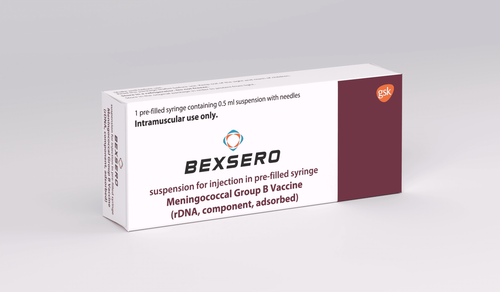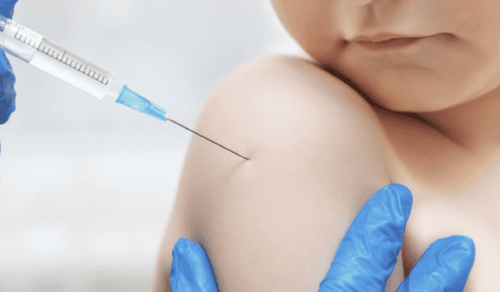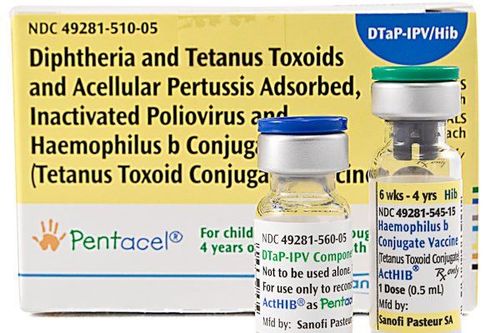This is an automatically translated article.
Immunizations are an important preparatory step to giving babies a healthy start to their first years of life. Some vaccines previously received are still on the 6-month-old immunization schedule with subsequent doses.
1. Immunization schedule for 6-month-old children
According to the US Centers for Disease Control and Prevention (CDC), vaccines for 6-month-old babies are recommended against the following diseases:
1.1. Diphtheria, tetanus and pertussis (DTaP) - 3rd dose Diphtheria begins with a sore throat, low-grade fever and chills. The diphtheria toxin then creates a thick white or gray coating on the back of the nose and throat, making it difficult for the patient to breathe or swallow.
Tetanus is a serious illness caused by bacteria that invade the body, toxins that cause stiffness, spasms and aching muscles. Tetanus bacteria also produce tight jaw, which causes the neck and jaw muscles to become locked, making it difficult to open the mouth or swallow, and can lead to death.
Whooping cough begins with a runny or stuffy nose, mild cough, and respiratory arrest in infants. Coughing can begin about 1-2 weeks after exposure to the bacteria. Babies and young children with whooping cough are at increased risk for more serious problems, such as difficulty breathing, poor appetite, insomnia, vomiting, and paleness from the cough.
CDC recommends that children get all 5 doses of DTaP vaccine, starting at 2 months of age. The doses are then given when the child is 4 months old, 6 months old, about 15-18 months old, and finally 4-6 years old.
1.2. Haemophilus influenzae type B (Hib) pneumonia and meningitis - 3rd dose Hib vaccine protects against the bacteria that cause HIB (Haemophilus Influenzae type b). This is a common cause of ear infections in children ranging from mild to serious blood infections. In addition, lung infection (pneumonia) and infection of the lining of the brain - spinal cord (purulent meningitis) are also two dangerous diseases caused by Hib bacteria.
Hib disease can cause brain damage, hearing loss or even death. Up to one in five children who survive Hib meningitis will develop brain damage or become deaf. Before vaccines were available, about 20,000 children under the age of 5 were infected with Hib bacteria and contracted dangerous diseases each year.
CDC recommends 3 - 4 doses of Hib vaccine depending on brand, starting at 2 months of age. The doses are then given when the child is 4 months old, 6 months old and between 15 and 18 months old.

CDC khuyến cáo trẻ nên tiêm 3 - 4 liều vắc xin Hib tùy thuộc vào nhãn hiệu, bắt đầu từ 2 tháng tuổi
1.3. Polio (IPV) - 3rd dose Polio is an infectious disease, caused by the Polio virus that has the ability to invade the brain and spinal cord. Polio carries the risk of lifelong paralysis and even death. Thanks to the inactivated poliovirus vaccination program, Vietnam was recognized by the World Health Organization for polio eradication nationwide in 2000. Over the past time, our country has maintained the exemption rate. Although epidemics are high in the community, the disease is still a threat in some other countries.
CDC recommends that children get 4 doses of IPV vaccine, starting at 2 months of age. The doses are then given when the child is 4 months old, 6-18 months old and finally 4-6 years old.
1.4. Pneumococcal (PCV13) - 3rd dose Pneumococcal disease is caused by the bacteria Streptococcus pneumoniae (Streptococcus pneumoniae), which can cause ear and sinus infections, and more serious infections of the lungs (pneumonia), the lining of the brain and spinal cord (meningitis) and blood. Complications from a serious pneumococcal infection can result in lifelong disability or death.
CDC recommends that children get 4 doses of PCV13 vaccine, starting at 2 months of age. The doses are then given when the child is 4 months old, 6 months old and finally 12-15 months old.
1.5. Rotavirus (RV) Acute Diarrhea - 3rd dose Rotavirus is an infectious virus that causes severe diarrhea, accompanied by vomiting, fever, and abdominal pain, requiring hospitalization. Infants and young children are the most common subjects with acute diarrhea due to rotavirus infection. Symptoms of the disease tend to be milder if present in adults.
CDC recommends that children get 2 - 3 doses of RV vaccine depending on the brand, starting at 2 months of age. Subsequent doses are given at 4 and 6 months of age (if using the RotaTeq brand).
1.6. Influenza - every year Because the flu virus changes over time, new vaccines are also produced each year to protect children and adults against potentially pathogenic influenza viruses. In addition, the body's immunity after flu vaccination also weakens, with no permanent effect.
CDC recommends that everyone 6 months of age and older get a seasonal flu shot each year, preferably around the end of October, for the best protection against flu.
2. Notes after vaccination

Cho bé bú sữa mẹ và uống nước thường xuyên hơn sau khi tiêm
Sometimes a baby will have a mild reaction after a 6-month-old vaccine is given, such as pain at the injection site, rash or fever. These reactions are normal and will go away on their own shortly. Some temporary treatments can be applied as follows:
Apply a cool, damp cloth to help reduce redness, swelling, and pain at the injection site; Wipe yourself with a towel and cool water for your baby to reduce fever; Consult your doctor before giving your child a non-aspirin pain reliever. In addition, after vaccinating a 6-month-old baby, parents should:
Find out information about the side effects of the vaccine that your child may experience; Breastfeed your baby and drink water more often. It is common for some children to eat less within 24 hours of vaccination and this is not a cause for concern; Keep an eye on and pay more attention to your baby for a few days. If you notice anything unusual, talk to your doctor. Adhering to the 6-month-old immunization schedule with additional doses of vaccines will build your baby's immunity strong enough to prevent dangerous diseases. Getting the recommended number of doses of vaccines for a 6-month-old baby also helps strengthen the immune system, which is weakened over time, and protects the baby's overall health.
Vinmec International General Hospital is a medical facility that uses high quality vaccines of clear origin, suitable for each age to be vaccinated, ensuring safety from the stage of registration, storage to when put into use.
For direct advice or to schedule an appointment to vaccinate your child at Vinmec, parents please book an appointment HERE or contact HOTLINE:
Vinmec Times City - Hanoi: 024 3974 3556 Vinmec Ha Long: 0203 3828 188 Vinmec Hai Phong : 0225 730 9888 Vinmec Da Nang : 0236 3711 111 Vinmec Nha Trang : 0258 3900 168 Vinmec Central Park - City. Ho Chi Minh City : 028 3622 1166 Vinmec Phu Quoc : 0297 398 5588 Vinmec Royal City Clinic - Hanoi: 024 3975 6887 Vinmec Saigon Clinic - (028) 3520 3366 Vinmec Gardenia Clinic - Hanoi: 024 3975 6788 Vinmec Metropolis - Hanoi: 024 3975 6886
Please dial HOTLINE for more information or register for an appointment HERE. Download MyVinmec app to make appointments faster and to manage your bookings easily.
Reference source: cdc.gov












